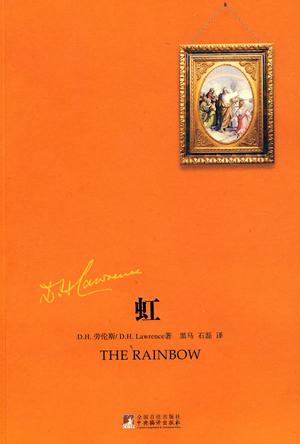孙子兵法(中英文对照版)-第2部分
按键盘上方向键 ← 或 → 可快速上下翻页,按键盘上的 Enter 键可回到本书目录页,按键盘上方向键 ↑ 可回到本页顶部!
————未阅读完?加入书签已便下次继续阅读!
entire than to destroy it; to capture a regiment; a detachment or a pany entire than to destroy them。
2。 Hence to fight and conquer in all your battles is not supreme excellence; supreme excellence consists in breaking the enemy's resistance without fighting。
3。 Thus the highest form of generalship is to balk the enemy's plans; the next best is to prevent the junction of the enemy's forces; the next in order is to attack the enemy's army in the field; and the worst policy of all is to besiege walled cities。
4。 The rule is; not to besiege walled cities if it can possibly be avoided。 The preparation of mantlets; movable shelters; and various implements of war; will take up three whole months; and the piling up of mounds over against the walls will take three months more。
5。 The general; unable to control his irritation; will launch his men to the assault like swarming ants; with the result that one…third of his men are slain; while the town still remains untaken。 Such are the disastrous effects of a siege。
6。 Therefore the skillful leader subdues the enemy's troops without any fighting; he captures their cities without laying siege to them; he overthrows their kingdom without lengthy operations in the field。
7。 With his forces intact he will dispute the mastery of the Empire; and thus; without losing a man; his triumph will be plete。 This is the method of attacking by stratagem。
8。 It is the rule in war; if our forces are ten to the enemy's one; to surround him; if five to one; to attack him; if twice as numerous; to divide our army into two。
9。 If equally matched; we can offer battle; if slightly inferior in numbers; we can avoid the enemy; if quite unequal in every way; we can flee from him。
10。 Hence; though an obstinate fight may be made by a small force; in the end it must be captured by the larger force。
11。 Now the general is the bulwark of the State; if the bulwark is plete at all points; the State will be strong; if the bulwark is defective; the State will be weak。
12。 There are three ways in which a ruler can bring misfortune upon his army:
13。 (1) By manding the army to advance or to retreat; being ignorant of the fact that it cannot obey。 This is called hobbling the army。
14。 (2) By attempting to govern an army in the same way as he administers a kingdom; being ignorant of the conditions which obtain in an army。 This causes restlessness in the soldier's minds。
15。 (3) By employing the officers of his army without discrimination; through ignorance of the military principle of adaptation to circumstances。 This shakes the confidence of the soldiers。
16。 But when the army is restless and distrustful; trouble is sure to e from the other feudal princes。 This is simply bringing anarchy into the army; and flinging victory away。
17。 Thus we may know that there are five essentials for victory: (1) He will win who knows when to fight and when not to fight。 (2) He will win who knows how to handle both superior and inferior forces。 (3) He will win whose army is animated by the same spirit throughout all its ranks。 (4) He will win who; prepared himself; waits to take the enemy unprepared。 (5) He will win who has military capacity and is not interfered with by the sovereign。
18。 Hence the saying: If you know the enemy and know yourself; you need not fear the result of a hundred battles。 If you know yourself but not the enemy; for every victory gained you will also suffer a defeat。 If you know neither the enemy nor yourself; you will succumb in every battle。
?
04《孫子兵法》形篇第四
孫子曰:昔之善戰者,先為不可勝,以侍敵之可勝。不可勝在己,可勝在敵。故善戰者,能為不可勝,不能使敵之必可勝。故曰:勝可知,而不可為。不可勝者,守也﹔可勝者,攻也。守則不足,攻則有餘。善守者,藏于九地之下﹔善攻者,動于九天之上。故能自保而全勝也。
見勝不過眾人之所知,非善之善者也﹔戰勝而天下曰善,非善之善者也。故舉秋毫不為多力,見日月不為明目,聞雷霆不為聰耳。古之所謂善戰者,勝于易勝者也。故善戰之勝也,無智名,無勇功。故其戰勝不忒。不忒者,其所措必勝,勝已敗者也。故善戰者,立于不敗之地,而不失敵之敗也。是故勝兵先勝而後求戰,敗兵先戰而後求勝。善用兵者,修道而保法,故能為勝敗之政。
兵法:一曰度,二曰量,三曰數,四曰稱,五曰勝。地生度,度生量,量生數,數生稱,稱生勝。
故勝兵若以鎰稱銖,敗兵若以銖稱鎰。
勝者之戰民也,若決積水于千仞之谿者,形也。
IV。 TACTICAL DISPOSITIONS
1。 Sun Tzu said: The good fighters of old first put themselves beyond the possibility of defeat; and then waited for an opportunity of defeating the enemy。
2。 To secure ourselves against defeat lies in our own hands; but the opportunity of defeating the enemy is provided by the enemy himself。
3。 Thus the good fighter is able to secure himself against defeat; but cannot make certain of defeating the enemy。
4。 Hence the saying: One may know how to conquer without being able to do it。
5。 Security against defeat implies defensive tactics; ability to defeat the enemy means taking the offensive。
6。 Standing on the defensive indicates insufficient strength; attacking; a superabundance of strength。
7。 The general who is skilled in defense hides in the most secret recesses of the earth; he who is skilled in attack flashes forth from the topmost heights of heaven。 Thus on the one hand we have ability to protect ourselves; on the other; a victory that is plete。
8。 To see victory only when it is within the ken of the mon herd is not the acme of excellence。
9。 Neither is it the acme of excellence if you fight and conquer and the whole Empire says; 〃Well done!〃
10。 To lift an autumn hair is no sign of great strength; to see the sun and moon is no sign of sharp sight; to hear the noise of thunder is no sign of a quick ear。
11。 What the ancients called a clever fighter is one who not only wins; but excels in winning with ease。
12。 Hence his victories bring him neither reputation for wisdom nor credit for courage。
13。 He wins his battles by making no mistakes。 Making no mistakes is what establishes the certainty of victory; for it means conquering an enemy that is already defeated。
14。 Hence the skillful fighter puts himself into a position which makes defeat impossible; and does not miss the moment for defeating the enemy。
15。 Thus it is that in war the victorious strategist only seeks battle after the victory has been won; whereas he who is destined to defeat first fights and afterwards looks for victory。
16。 The consummate leader cultivates the moral law; and strictly adheres to method and discipline; thus it is in his power to control success。
17。 In respect of military method; we have; firstly; Measurement; secondly; Estimation of quantity; thirdly; Calculation; fourthly; Balancing of chances; fifthly; Victory。
18。 Measurement owes its existence to Earth; Estimation of quantity to Measurement; Calculation to Estimation of quantity; Balancing of chances to Calculation; and Victory to Balancing of chances。
19。 A victorious army opposed to a routed one; is as a pound's weight placed in the scale against a single grain。
20。 The onrush of a conquering force is like the bursting of pent…up waters into a chasm a thousand fathoms deep。
?
05《孫子兵法》勢篇第五
孫子曰:凡治眾如治寡,分數是也﹔鬥眾如鬥寡,形名是也﹔三軍之眾,可使必受敵而無敗,奇正是也﹔兵之所加,如以碫投卵者,虛實是也。
凡戰者,以正合,以奇勝。故善出奇者,無窮如天地,不竭如江河。終而復始,日月是也。死而復生,四時是也。聲不過五,五聲之變,不可勝聽也。色不過五,五色之變,不可勝觀也。味不過五,五味之變,不可勝嘗也。戰勢不過奇正,奇正之變,不可勝窮之也。奇正相生,如環之無端,孰能窮之?
激水之疾,至于漂石者,勢也﹔鷙鳥之疾,至于毀折者,節也。是故善戰者,其勢險,其節短。勢如張弩,節如發機。
紛紛紜紜,鬥亂而不可亂也。渾渾沌沌,形圓而不可敗也。
亂生于治,怯生于勇,弱生于強。治亂,數也﹔勇怯,勢也﹔強弱,形也。
故善動敵者,形之,敵必從之﹔予之,敵必取之。以利動之,以卒動之。
故善戰者,求之于勢,不責于人,故能擇人而任勢。任勢者,其戰人也,如轉木石。木石之性,安則靜,危則動,方則止,圓則行。故善戰人之勢,如轉圓石于千仞之山者,勢也。
V。 ENERGY
1。 Sun Tzu said: The control of a large force is the same principle as the control of a few men: it is merely a question of dividing up their numbers。
2。 Fighting with a large army under your mand is nowise different from fighting with a small one: it is merely a question of instituting signs and signals。
3。 To ensure that your whole host may withstand the brunt of the enemy's attack and remain unshaken this is affected by maneuvers direct and indirect。
4。 That the impact of your army may be like a grindstone dashed against an egg。 This is effected by the science of weak points and strong。
5。 In all fighting; the direct method may be used for joining battle; but indirect methods will be needed in order to secure victory。
6。 Indirect tactics; efficiently applied; are inexhaustible as Heaven and Earth; unending as the flow of rivers and streams; like the sun and moon; they end but to begin anew; like the four seasons; they pass away to return once more。
7。 There are not more than five musical notes; yet the binations of these five give rise to more melodies than can ever be heard。
8。 There are not more than five primary colors (blue; yellow; red; white; and black); yet in bination they produce more hues than can ever been seen。
9。 There are not more than five cardinal tastes (sour; acrid; salt; sweet; bitter); yet binations of them yield more flavors than can ever be tasted。
10。 In battle; there are not more than two methods of attack; the direct and the indirect; yet these two in bination give rise to an endless series of maneuvers。
11。 The direct and the indirect lead on to each other in turn。 It is like moving in a circle。 You never e to an end。 Who can exhaust the possibilities of their bination?
12。 The onset of troops is like the rush of a torrent which will even roll stones along in its course。
13。 The quality of decision is like the well…timed swoop of a falcon which enables it to strike and destroy its victim。
14。 Therefore the good fighter will be terrible in his onset; and prompt in his decision。
15。 Energy may be likened to



